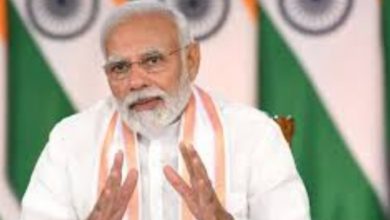‘Protests against Taliban won’t stop till schools for girls reopened’

LAST WEEK the Taliban went back on their most-concrete promise yet to reopen high schools for girls, leaving many who turned up for class, only to be turned back, in tears. This time though the students have not retreated behind the doors of their homes as the government intended; many are out on the streets.
“You took my holy land, now don’t take away my pen”, “What is my crime that I should be denied education?”, “No government is stable without the support of women”, “If my ser can’t go to school, neither will I…” — these are some of the slogans and questions being raised the teachers, principals and students of girls’ schools, and women activs, protesting in Kabul against the rule barring schooling for girl students Class 6 onwards.
Sorya High School for Girls, Kabul
The fear of returning to a dark past is one reason. The other is the realisation that six months into the Taliban takeover of Afghanan, the world’s attention has moved onto other issues and wars. As per some estimates, around 3 million girls in Classes 7 to 12 are out of school in the country.
“They are restricting schooling for girls because they know that once they do this, universities and colleges will empty on their own in coming years,” says Tamana Formuly, a science teacher at the Shams-Ul-Huda.
High School, which has seen 700 of its 1,000 girls barred. But this time, it’s different, Formuly tells The Indian Express. “The fear of death is gone now. These protests won’t stop till schools for girls are reopened.”
Ayesha-e-Durani High School for girls in Kabul, just a few meters away from the Presidential Palace ARG
Teachers like Formuly, some of whom have come under Taliban glare for their activism, are stunned at the ease with which the Taliban have stopped education for girls, the same as during their first stint in power nearly two decades ago, right under the noses of the United Nations and global leaders. “Despite all the promises made the Taliban to the world, even girls in big cities like Kabul and Herat are being deprived of education,” Formuly says.
She adds that the six months of Taliban rule had also shown that the girls couldn’t count on support from within. “Unfortunately in Afghan society, we still have fathers who do not support schooling for their daughters. Who will speak for those girls if not their teachers?… Without education, they will just be slaves of men.”
Rabia-e-Balkhi girls school in Karte-4, Kabul
Karima Rahimyar, a biology teacher from Ghazi Mohammad Jan Khan School, Kabul, says at least 4,000 of their 6,000 girls have not been able to attend school. The past few days, Rahimyar has been on the streets with a book in one hand and a placard in the other. “Yes we used to fear the Taliban 20 years ago, but now we don’t,” she says.
Nafiza Wakili, a teacher from a girl’s high school in Nimruz, says: “Educating girls is more important than educating boys because she will be a mother tomorrow… We feel like prisoners again. I have worked for girls’ education for 10 years and now I am sitting at home.”
Shima Siddiqui, principal of Naswan Rodaba Girls’ School, Nimruz province, says she and her husband had to flee home and stay away for two weeks after threats from the Taliban. Her phone with messages supporting girls’ education and criticising the Taliban, was seized and broken.





